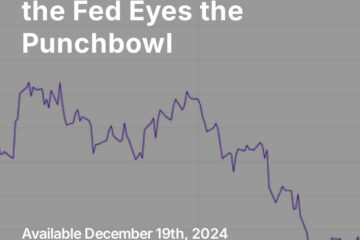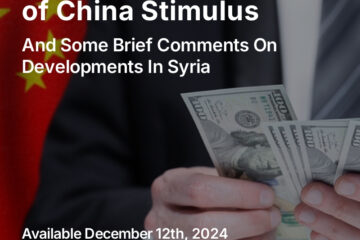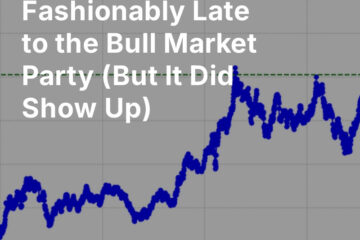Last weekend concluded the 20th National Congress of the Communist Party of China, at which a new slate of Chinese leaders were presented: the Politburo, and most significantly, the Politburo’s seven-member Standing Committee. As had been widely expected, President Xi Jinping broke with the precedent established by his predecessors which had limited the President to two terms; Xi is now entering on his third. The post-Mao leadership of China had been eager to avoid anointing another ruler-for-life — but for years, Mr Xi has been showing signs of the return to a more Mao-like cult of personality. (At the last National Congress, the ruling cadre introduced the new category of “Xi Jinping Thought” to the lexicon of official doctrine, thus elevating Mr Xi to the same plane as Mao.)
Unmentioned in Chinese media, Mr Xi’s immediate predecessor, Hu Jintao, was unceremoniously removed from his seat at the podium and removed from the proceedings — apparently having insisted on attending in defiance of expectations (other past presidents were conspicuously absent, having apparently heeded the instruction not to detract from Mr Xi’s glory by their presence). The proceedings were otherwise a carefully choreographed affair populated entirely with loyalists, and pointedly lacking those in disgrace or alienated from the ruling clique.
Mr Xi has finally created a government of yes-men, surrounding himself with a cadre of friends and allies who will not question his policy direction. The Standing Committee now consists of men promoted through the ranks by Xi or with other close working ties: for example, the leader of the Party’s disciplinary commission, who has family ties with Xi; the party’s top political theorist; an old comrade from provincial days in Fujian Province; and the party chief of Shanghai who implemented that city’s recent draconian covid lockdowns. This ideologically loyal group reflects the remaking of the Party’s leadership under Mr Xi, who has used anticorruption efforts to purge the Party of many competitors and rivals. Reform-minded men such as outgoing Premier Li Keqiang and Vice-Premier Wang Yang both lost their seats on the Standing Committee.
Exports and GDP growth are weakening according to official data recently released after an unexplained delay. GDP is set to finish the year well under the official 5% target, and export growth decelerating. There is also a host of internal challenges, including a teetering housing market (obliquely referred to by Xi in his remarks to the Congress that “housing is for living, not for speculation”).
To outside observers, this suggests that at a time of particular difficulty for China, the Chinese Communist Party will lack any balance of power among opposing factions, and there will be no one left to challenge Mr Xi should his policy decisions fail to restore growth, stability, and the confidence of ordinary Chinese citizens. Essentially, Mr Xi is a chief executive officer with a team around him who will not challenge him. The policymakers purged and retired by Mr Xi tend to be economy and market-oriented; the new arrivals tend to be ideologically and politically oriented.
Particularly important for observers is the persistence of the economy-hobbling zero covid measures, and the appointment of Li Qiang, as noted above, suggests that these measures may not be removed soon. Speculation is pushing their easing later into 2023. Investors responded by sending Hong Kong and overseas-traded shares of Chinese companies to lows not seen since the 2008 financial crisis. Of course, this is important not just for China, but for the global economy, with the likely arrival of a global recession in 2023 (if indeed it is not here already).
Beyond zero-covid, Mr Xi’s opening speech presented a consolidation of the shift in Chinese politics away from the authoritarian capitalism that undergirded much of Chinese growth in the decades since Deng Xiaoping — and especially in the era that saw the rise of now-sidelined tech titans such as Alibaba’s Jack Ma. The shift seems to favor inefficient state enterprises and more heavy-handed central government interventions, as opposed to the freewheeling wild-west of private enterprise that followed China’s accession to the World Trade Organization.
An analysis of keywords in his two-hour speech, compared with the corresponding speeches at the Congresses in 2017 and 2012 show an increase in the frequency of terms such as “people,” “socialism,” “modernization,” “security,” and “military,” a consistent frequency of the terms “growth” and “law-based governance,” and a decline in the frequency of the terms “economy,” “reform,” and “market.”
One thing that will certainly be happening is that capital will be seeking to escape from China. A report in The Financial Times from a European manager who creates “emergency fire escapes” for ultra-high-net-worth Chinese citizens indicated that many are activating those plans. Singapore has seen a significant uptick in the formation of family offices by wealthy Chinese during all of Mr Xi’s tenure, but that activity particularly accelerated over the last year — so these developments were not unexpected by many wealthy Chinese. Of course, it is now more difficult to get money out of China than it was in the years when there was a tacit agreement with the authorities that you could leave with your money, but if you did, you could never return. The yuan devaluation in 2015 corresponded with a bitcoin price spike, and the recent Party Congress also saw bitcoin advance to $21,000. We would not be surprised if the continued consolidation of Mr Xi’s policy regime provides tailwinds to bitcoin in coming months as incrementally more Chinese make use of it as one way to get their wealth out of China ahead of punitive taxation and heavy-handed policy.
Investment Implications: Mr Xi’s consolidation of power suggests that China is moving in a less pragmatic, more politically, geopolitically, and militarily oriented direction — away from authoritarian capitalism and back in the direction of authoritarian “socialism with Chinese characteristics.” This is clearly problematic for investors in Chinese equities — although as we have long noted, Chinese equities tend to trade purely on momentum and sentiment, and not on underlying fundamentals. As long as the former leaders of China’s unfettered growth are seen to be under official disapproval, sentiment could remain poor. In any event, the era of China’s role as the “global growth of last resort” seems to be drawing to a close, hastened by a domestic turn back towards centralized economic authority, and ongoing geopolitical tensions with the United States and its allies. Speculators tempted to enter Chinese markets due to recent price declines should consider these larger factors before committing.
This focus on factors extraneous to growth is a sign that global economic growth will not rise in 2023; at the same time, the U.S. is continuing and intensifying its competitive resistance to China’s use of U.S. technology and increasing awareness of Chinese theft of U.S. technology in many areas. World economic growth is likely to decelerate, as one of its major growth engines is going to be much less growth-oriented. U.S. growth will be slow, and we expect a modest recession in 2023, but world growth will be slower and investors are becoming aware of this. This will send more capital to the efficient and cheaper markets in Europe and North America over the longer term. For this reason, we anticipate a modest recession for the U.S., but more severe problems for other regions where trade with China has been a big part of their economy.



